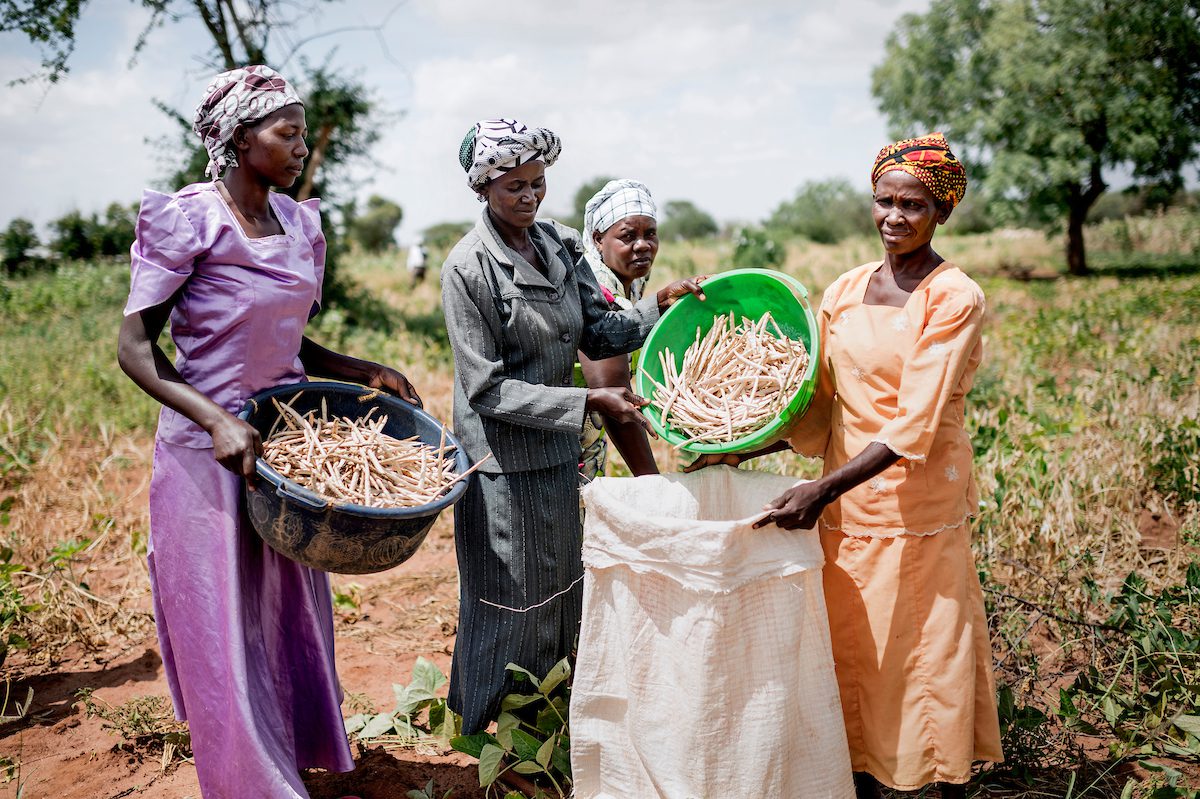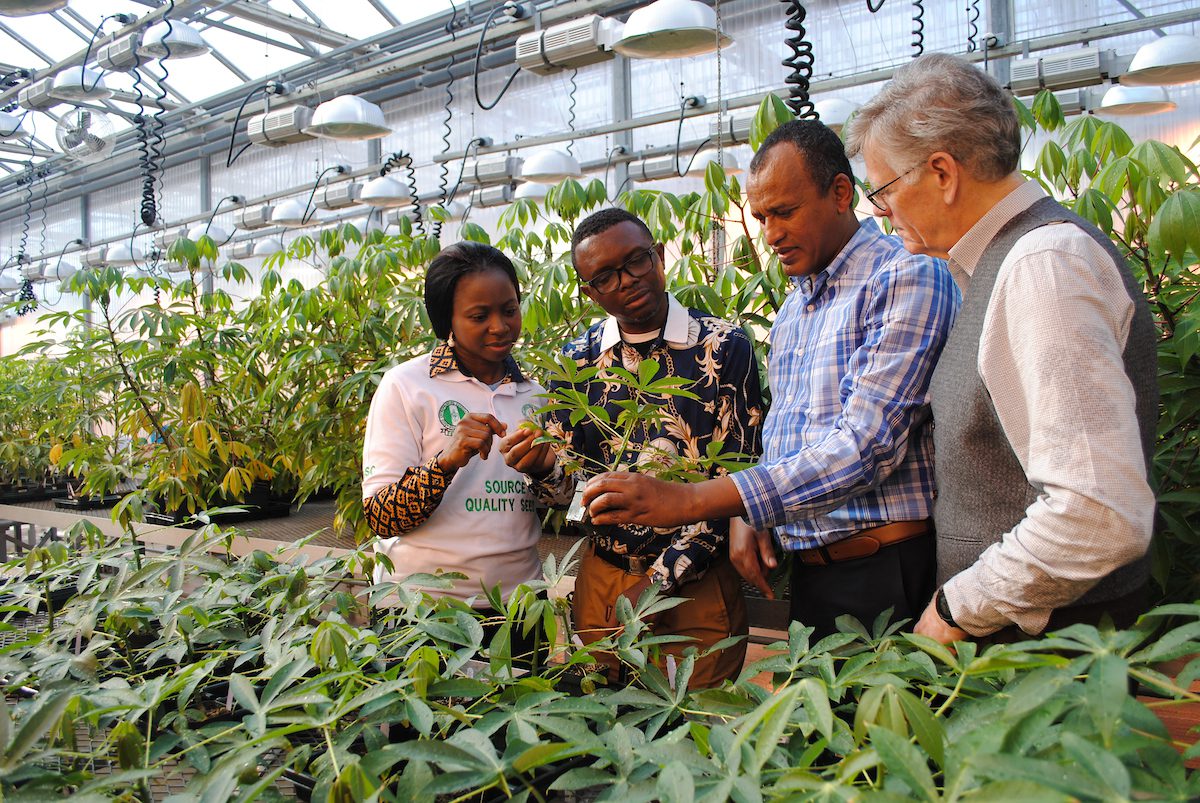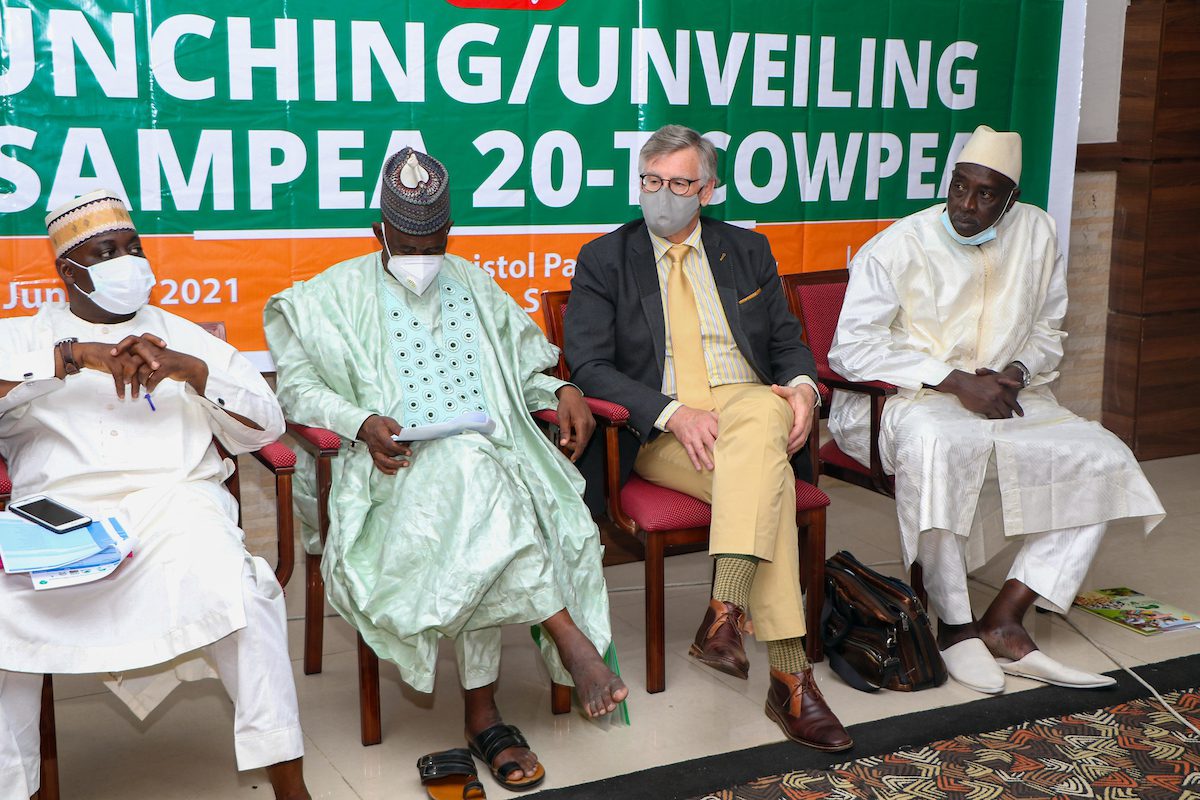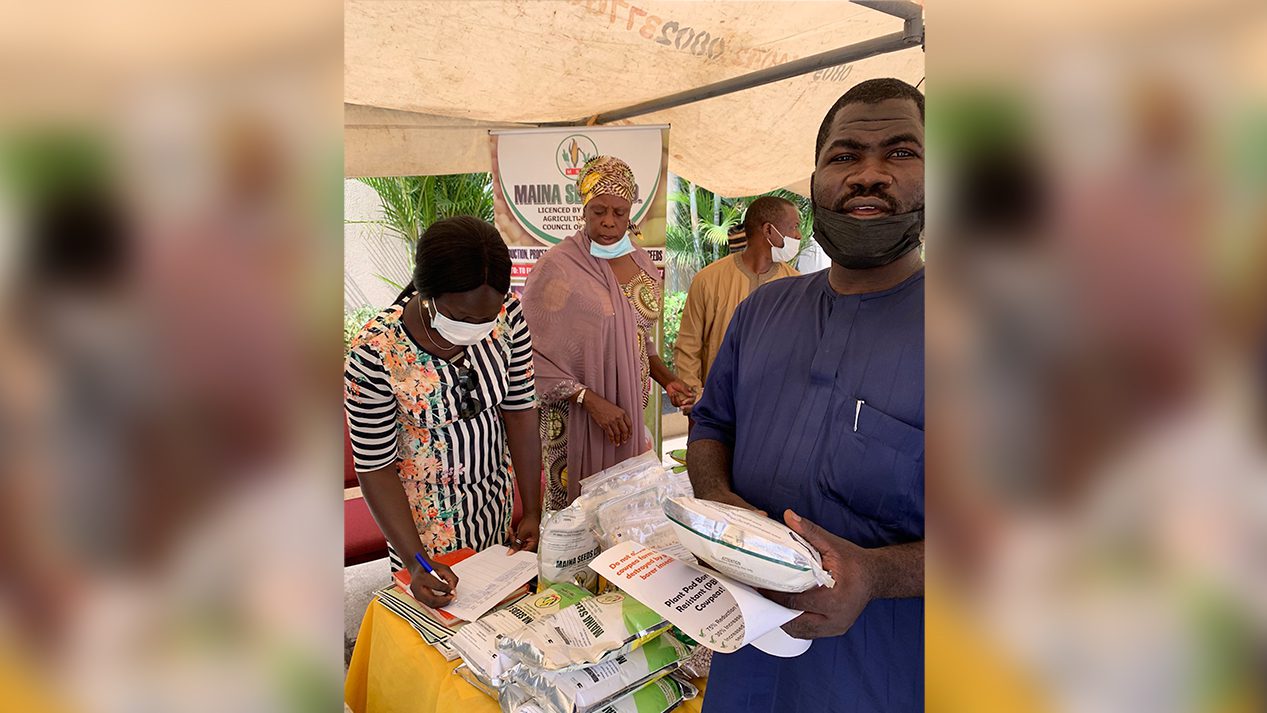Newswise — Cowpeas, or black-eyed peas, are an incredibly important staple crop for much of Africa. The crop tolerates drought and poor soils, and like many legumes, fixes its own nitrogen as well. Thanks to its ability to survive in difficult growing conditions, and the nutrients it provides, many food-insecure regions depend on cowpeas for their daily dietary protein.
This year, scientists at the Danforth Center have helped farmers in Africa reach a historic milestone that could improve the lives of millions of people for generations to come: the release of an improved black-eyed pea crop in Nigeria.
Farmers harvesting a cowpea crop. Cowpeas, or black-eyed peas, are an important staple crop in Africa. The Danforth Center recently helped bring a pest-resistant variety to Nigeria, which has potential to provide food security for millions of people and improve their health and well-being. If you would like to support our work, visit danforthcenter.org/grow. (Credit: Panos)
A Threat to the Nation
Nigeria is the world’s largest producer and consumer of cowpeas, yet more than 40 percent of cowpeas consumed in Nigeria are imported. Why? Because this crop is also vulnerable to infestations from an insect known as pod borers.
When they attack, these pests can devastate yields up to 80 percent, leaving farmers and families with next to nothing. To fight back, current cowpea crops must be sprayed six to ten times throughout the growing season with dangerous pesticides by farmers typically unequipped with the proper protective gear, at substantial expense and risk to their health.
For these reasons, the Danforth Center has been working for many years to help bring to farmers an improved cowpea that is resistant to pod-borer attacks.
How (Well) it Works
Pod-borer resistant (PBR) cowpea relies on a gene from Bacillus thuringiensis (Bt), a naturally occurring, soil-borne bacteria long used in organic agriculture to control certain insect pests. The initial research was done by TJ Higgins of the Commonwealth Scientific and Industrial Research Organization in Australia working with Mohammad Ishiyaku of the Institute for Agricultural Research, Ahmadu Bello University, in Zaria, Nigeria.
The improved cowpea has been field-tested in Nigeria since 2009. Research and regulatory work demonstrate nearly complete protection against the pod borer.
The Danforth Center’s Institute for International Crop Improvement (IICI) was instrumental in securing final approval from the Nigerian government, moving a decades-long project over the finish line.
With PBR cowpea, not only will yields increase dramatically, but farmers can significantly reduce pesticide use, which will benefit farmers’ health, as well as the environment.
DON MACKENZIE, PHD, EXECUTIVE DIRECTOR, IICI
Representatives from partner institutions who helped bring PBR cowpea to market visiting the Danforth Center. From left: Rebecca Mewase of the National Agricultural Seeds Council; Francis Nwankwo, PhD, of the African Agricultural Technology Foundation; Getu Duguma, PhD, and Don MacKenzie, PhD, both of the Danforth Center.
Crossing the Finish Line
This summer, the dream of providing farmers with improved, pest-resistant cowpea was finally realized. On June 29, the variety was released at a special ceremony in Kano, Nigeria, with Don MacKenzie, Executive Director of the IICI in attendance.
Danforth Center IICI Executive Director Don MacKenzie, PhD, (second from right) at the unveiling of improved cowpea in Kano, Nigeria.
By getting this crop into farmers’ hands, the Danforth Center is helping to improve food security for more than 200 million people. By drastically reducing the need for pesticide application, this new variety will also help protect the environment and further benefit farmers’ health and safety. With improved cowpea being produced by three different companies for sale to farmers in Nigeria, there is enough stock to supply around one thousand farmers this first growing season.
PBR Cowpea will greatly benefit farmers and consumers in Nigeria and national cowpea production will increase by 20-100%.
DR. DENIS KYETERE, EXECUTIVE DIRECTOR, AATF
Nigerian farmer purchasing improved cowpea. SAMPEA 20-T, as the variety is known, is resistant to the devastating pod borer insect, increasing yields and minimizing pesticide use.
Partners in Progress
The Danforth Plant Science Center is thankful to be a partner in bringing improved cowpea to Nigeria with: African Agricultural Technology Foundation (AATF); Commonwealth Scientific and Industrial Research Organisation (CSIRO); Institute for Agricultural Research (IAR) of Ahmadu Bello University, Zaria; Savanna Agricultural Research Institute (SARI), Ghana; Institut de l’Environnement et de Recherches Agricoles (INERA), Burkina Faso; National Agricultural Seeds Council (NASC), Nigeria; and the National Biotechnology Development Agency (NABDA), Nigeria.
AATF facilitated the development with funding support from the United States Agency for International Development.





More Stories
U.S. charges FTX founder Sam Bankman-Fried with criminal fraud
Time series forecasting with XGBoost and InfluxDB
Full-stack engineering is one-third as good